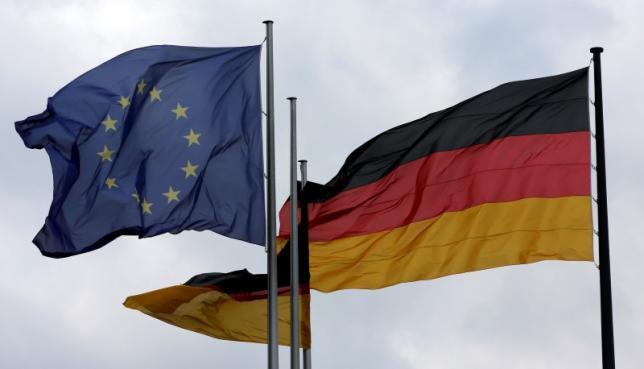Plunge in German industry output points to weaker growth in second quarter

BERLIN - German industrial output plunged unexpectedly in May, posting its steepest monthly drop since August 2014, data showed on Thursday, suggesting Europe's largest economy lost steam in the second quarter after its surprisingly strong start to the year.
The weak output figures followed data on Wednesday showed that German industrial orders were flat in May, before Britain's decision to leave the European Union, and were weaker than expected, pointing to an economic slowdown.
Economists have warned that Britain's June 23 decision to leave the 28-member bloc is likely to hit German exports and reduce growth by as much as half a percentage point next year.
Industrial output was down 1.3 percent on the month, data from the Economy Ministry showed, below the consensus forecast in a Reuters poll for an unchanged reading.
May's slowdown reflected weaker production of capital goods and manufacturing while the April reading was revised down to a 0.5 percent increase from an initially reported rise of 0.8 percent.
"Even before the June data, one thing is clear today: Production will weigh on growth in the second quarter," Bankhaus Lampe economist Alexander Krueger said, adding the main reason for the poor reading were special factors such as the strong performance in the first three months of the year.
He also said there had been weak demand for German industrial goods due to a slowdown in emerging markets.
The ministry said May's poor reading also reflected an unusually high number of holidays in the month.
But even in the less volatile period from March to May, industrial output fell 0.5 percent, it said, adding the data pointed to slightly weaker industrial output in the second quarter.
Still, it said recently improved sentiment in the sector points to a continuation of an moderate upswing in industry.
ING Bank economist Carsten Brzeski said the data increased the risk of a hard landing for the German economy in the second quarter.
"However, such an assessment could be too simple. In fact, the latest data only confirm the picture of a two-speed economy," he said.
"While the domestic economy is booming, the former growth engines -- exports and industrial production -- are weakening. With weaker industrial production, a traditional increase in investment also becomes less likely."
The German economy grew by 0.7 percent in the first quarter, its strongest quarterly rate in two years, with soaring private consumption, higher construction investment and state spending on refugees more than offsetting a dip in foreign trade.
For the second quarter, analysts expect German economic growth to slow to around 0.3 percent.
Separately, Germany's DIHK Chambers of Industry and Commerce on Thursday lowered its outlook for German exports to Britain after the Brexit vote.
DIHK sees a 1 percent drop in exports to the United Kingdom in 2016, down from its previous forecast of a 5 percent rise. In 2017, it expects German exports to Britain to drop by 5 percent.
A poll of some 5,600 firms commissioned by the DIHK showed that 26 percent of respondents were planning to cut jobs in their British units. -Reuters







